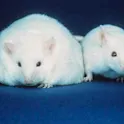Frontiers news
29 Sep 2016
Open for submissions: New Specialty Section Obesity
by Victor Kouassi, Frontiers Under the leadership of Prof. Katherine Samaras of St Vincent’s Hospital and the Garvan Institute of Medical Research, Sydney, the journals; Frontiers in Endocrinology, Frontiers in Public Health and Frontiers in Nutrition have launched a new specialty section on Obesity. The section is now open for submissions. The Obesity Specialty Section is intended to reflect the multidisciplinary research and strategies developed in this subject from “champions from every paradigm of science, clinical practice, public health, economics and policy” states Specialty Chief Editor Prof. Samaras. With figures from the WHO showing a doubling worldwide of obese individuals since 1980, obesity has rapidly become an issue deserving of immense attention in countries of all levels of income. The need for faster and widespread dissemination of research findings to mitigate and tackle this issue are increasingly in demand. In her recently published Specialty Grand Challenge article, this threat is described as an “Obesity Armageddon” which can be dodged by encouraging “innovative science in obesity, to integrate scientific effort between the disciplines”. Asked on what attracted her to launch this section in Frontiers, Dr. Samaras said, “The Frontiers series of journals are at the cutting edge. The process of Peer Review is innovative, […]














